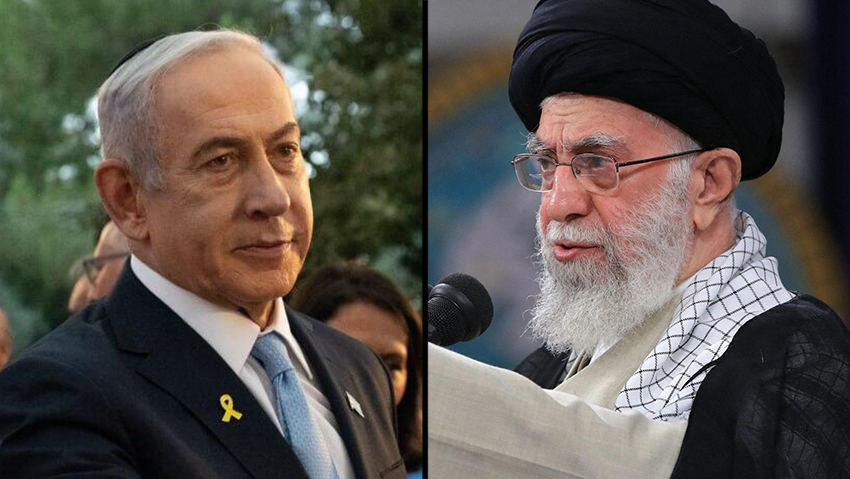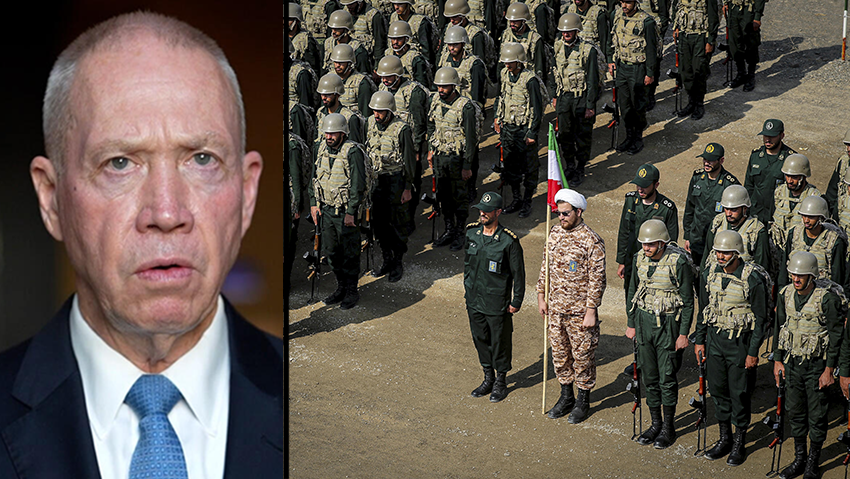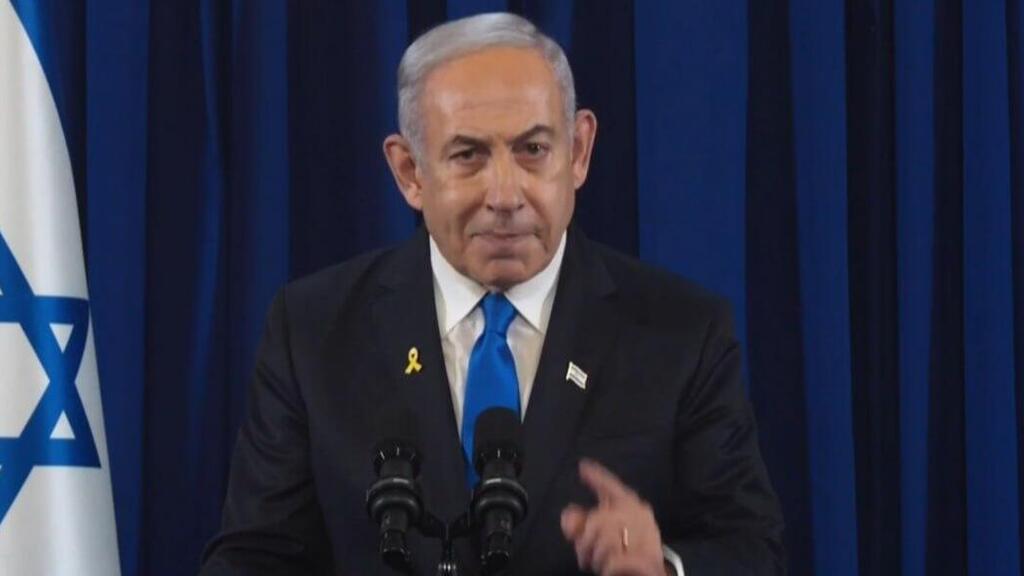Despite U.S. Secretary of State Antony Blinken's statement on Sunday saying an Iranian retaliatory attack against Israel will likely occur within 24 to 48 hours, Jerusalem reports uncertainty regarding the exact time, but preparations are in place for an immediate attack at any moment. According to The Washington Post, U.S. President Joe Biden’s administration informed American lawmakers that the attack could happen on Monday or Tuesday.
Israel has completed its defensive and offensive preparations after Prime Minister Benjamin Netanyahu held a security meeting on Sunday. No additional situational assessments were held on Monday. An Israeli official, referring to Blinken's comments, said, "We don't have a real indication of when they’ll attack. We assess that they will."
4 View gallery


Prime Minister Benjamin Netanyahu, Iranian Supreme Leader Ali Khamenei
(Photo: Naama Greenbaum/Haaretz, AFP)
In recent days, security forces distributed satellite phones to ministers and are now doing the same to senior advisors. This indicates Israel is preparing for scenarios involving blackouts and disruptions to the cellular network.
Aside from this, however, no special instructions were given to ministers, and the Security Cabinet wasn’t convened. IDF Chief of Staff LTG Herzi Halevi held a situational assessment and approved plans for various scenarios with senior military officials.
Israel places tremendous importance on American aid in forming a coalition that will work to intercept the attack. U.S. Central Command (CENTCOM) Commander Gen. Michael Kurilla arrived in Israel on Monday and held a situational assessment with LTG Halevi and Defense Minister Yoav Gallant.
This marks Kurilla's ninth visit to Israel since the war broke out on October 7, with the previous visit occurring two weeks ago. His role in the region is to ensure that the international coalition is coordinated and ready for any scenario.
The Americans understand that the better the attack is thwarted, the lower the likelihood of a regional war developing. The U.S. doesn’t wish to see further escalation and is conveying messages to both its allies and the Iranians to restrain the attack.
4 View gallery


Meeting between Israeli and American forces on Monday
(Photo: IDF Spokesperson's Unit)
The interception operation will be held from the U.S. Army's operations center in Qatar, responsible for most of the interception during the Iranian attack on April 13. On Monday, President Joe Biden is expected to convene a discussion on the Middle East situation. He spoke with King Abdullah II of Jordan and they discussed ways to de-escalate and the hostage deal, according to the white house.
Gallant told Kurilla during their meeting that his arrival in Israel at this time symbolizes support through actions more than anything else and that the relationship between Israel and the U.S. is unshakable.
Gallant also thanked U.S. Defense Secretary Lloyd Austin, and according to his office, "They discussed U.S. force posture moves that the Department is taking to bolster protection for U.S. forces, support the defense of Israel, and deter and de-escalate broader tensions in the region.”
Gallant also held talks with other Western defense ministers to expand coordination and ensure cooperation in warning and intercepting the attack. Gallant spoke with British Defense Secretary John Healey and Italian Defense Minister Guido Crosetto and is expected to speak with German Defense Minister Boris Pistorius. It’s estimated contacts were also made with moderate Arab countries behind the scenes.
French President Emmanuel Macron said on Monday he spoke with Saudi Crown Prince Mohammed bin Salman and United Arab Emirate (UAE) President Mohammed bin Zayed about the tensions in the Middle East. "We call on all players to show responsibility and restraint to prevent regional escalation," Macron said.
Gallant also visited the Israeli Air Force (IAF) headquarters on Sunday and conducted a situational assessment with IAF Commander Major General Tomer Bar and other senior commanders.
Gallant reviewed the defense array's readiness considering the security developments alongside offensive possibilities in all combat zones. "Our enemies are considering their steps carefully due to the capabilities you’ve demonstrated over the past year. However, we must be prepared for all possibilities - including a swift shift to offense,” he said.
Iran's Foreign Ministry said on Monday morning that Tehran doesn’t seek regional escalation but added that the Ayatollah regime believes Israel must be "punished" for the assassination of Hamas leader Ismail Haniyeh, which it attributes to Israel.
It added this was "necessary" to prevent further instability in the region. Iranian parliament member Mohammad Osmani today Tehran "won’t settle for anything less than Netanyahu's head."
Saudi network Al-Arabiya reported on Monday that Iran's Foreign Ministry summoned foreign ambassadors to affirm the Islamic Republic's intention to retaliate against Israel. Qatari network Al-Jazeera cited an " Islamic Revolutionary Guard Corps advisor," who said, "The revenge on Israel will be executed without warning."
Meanwhile, The Guardian reported the emergency meeting Iran requested with Muslim foreign ministers against Israel will take place on Wednesday. The meeting will include members of the Organization of Islamic Cooperation (OIC), in which Tehran will try to pressure Arab countries to support its right to take retaliatory actions against Israel. The British newspaper also wrote Iran might wait for the meeting's results before launching an attack.




